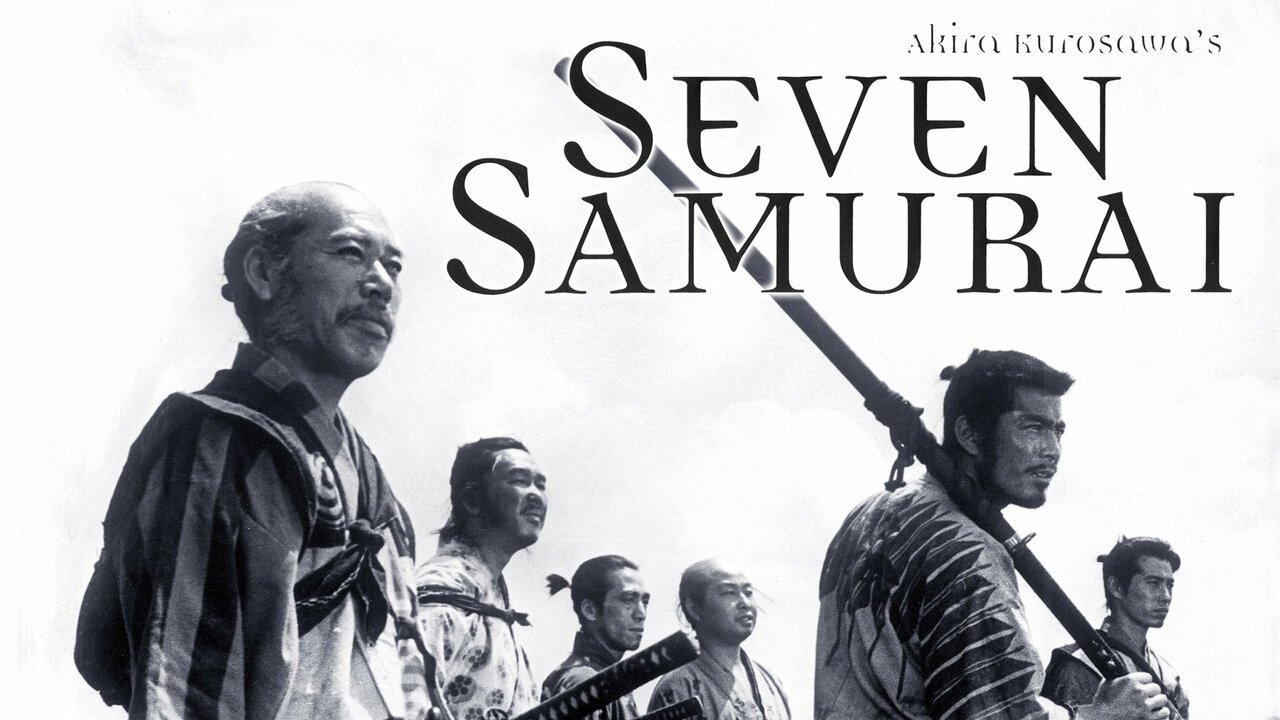
When it comes to iconic movies, Akira Kurosawa’s “Seven Samurai” definitely ranks among the best. Released in 1954, this masterpiece has not only stood the test of time but has also influenced countless filmmakers around the world. Set in feudal Japan, the film tells the story of a village suffering from constant attacks from a band of bandits. In their desperation, the villagers hire seven samurai to protect them and help defend their home. With an engaging storyline, powerful performances, and expertly choreographed battle scenes, “Seven Samurai” has cemented its place as a timeless classic. In this article, we will delve into 36 fascinating facts about this iconic film, shedding light on its production, its impact on the industry, and some lesser-known details that even die-hard fans may not be aware of. So, grab your swords and join us on this journey through the extraordinary world of “Seven Samurai.
Key Takeaways:
- “Seven Samurai” is a classic Japanese film set in feudal Japan, showcasing the honor and sacrifice of samurai defending a village. Its influence on cinema and storytelling is undeniable.
- The movie’s themes of teamwork, resilience, and complex characters continue to inspire filmmakers and captivate audiences worldwide. It’s a timeless masterpiece with enduring impact.
Seven Samurai is a Japanese epic film.
Directed by Akira Kurosawa, the movie was released in 1954 and is widely regarded as one of the greatest movies ever made.
The film is set in feudal Japan during the 16th century.
It tells the story of a village under attack by bandits and the seven samurai who are hired to defend it.
Seven Samurai is known for its long runtime.
The original cut of the film is over three hours long, making it an epic watch.
The movie explores themes of honor, sacrifice, and the complexities of human nature.
It delves into the moral dilemmas faced by the samurai as they protect the village.
Seven Samurai was a commercial success and received critical acclaim.
It was even nominated for two Academy Awards.
The film has had a huge influence on cinema.
It pioneered many aspects of filmmaking and storytelling that are still used today.
Seven Samurai is often referred to as the epitome of the samurai genre.
It showcases the samurai code of honor and their unwavering dedication to protecting the weak.
The movie features stunning cinematography.
Kurosawa’s use of wide shots and dynamic camera movements create a visually captivating experience.
The characters in Seven Samurai are well-developed and memorable.
Each of the seven samurai has their own distinct personality and backstory.
Seven Samurai is an immersive and emotionally engaging film.
The audience becomes invested in the fate of the village and the samurai.
The film showcases intricate battle sequences.
The fight scenes are choreographed with precision and showcase the samurai’s skill and strategy.
Seven Samurai has been praised for its strong female characters.
The movie breaks away from traditional gender roles, with one of the villagers disguising herself as a male warrior.
The music in the film complements the storytelling.
It adds depth and emotion to the scenes, enhancing the overall viewing experience.
Seven Samurai is often cited as a must-watch film for cinephiles.
Its influence on cinema is undeniable, and it continues to inspire filmmakers to this day.
The movie explores the complexities of class divisions.
It highlights the tension between the samurai and the peasant class, as well as the dynamics within each group.
Seven Samurai showcases the harsh realities of feudal life.
The villagers struggle with poverty and the constant threat of bandit attacks.
The film presents a nuanced portrayal of the samurai.
It challenges the romanticized image of the noble warrior and reveals their flaws and vulnerabilities.
Seven Samurai is a masterclass in storytelling.
The film expertly balances action, drama, and character development.
The movie’s pacing keeps the audience engaged throughout its runtime.
There are moments of suspense, humor, and introspection that add depth to the narrative.
Seven Samurai has been remade and referenced in various forms of media.
It has inspired countless adaptations, including the Western remake “The Magnificent Seven.
The film’s black and white cinematography adds a timeless quality to the visuals.
It allows the audience to focus on the characters and the story without distractions.
Seven Samurai’s screenplay is meticulously crafted.
The dialogue is sharp, and the story unfolds in a way that keeps the audience engaged.
The movie portrays the samurai as complex characters with their own motivations and inner conflicts.
They are not just simple warriors but individuals with depth and humanity.
Seven Samurai emphasizes the importance of teamwork.
The samurai must work together and utilize each other’s strengths to successfully defend the village.
The film’s climactic battle scene is an intense and thrilling sequence.
It showcases the tension and stakes involved in the final showdown with the bandits.
Seven Samurai received international acclaim and introduced Western audiences to Japanese cinema.
It played a significant role in bringing world cinema to a global audience.
The movie has inspired several homages and tributes in popular culture.
From references in other films to parodies and spoofs, its impact is far-reaching.
Seven Samurai remains a timeless classic.
Its themes and storytelling continue to resonate with audiences of all generations.
The film’s ensemble cast delivers outstanding performances.
Each actor brings depth and authenticity to their respective roles.
Seven Samurai explores the relationship between the samurai and the villagers.
It examines the initial distrust and eventual bond that forms between the two groups.
The movie’s depiction of battle tactics and strategy is meticulously researched.
The attention to detail adds realism to the fight sequences.
Seven Samurai is a testament to the power of storytelling.
It captivates the audience from start to finish, leaving a lasting impact.
The film’s critical success helped elevate Japanese cinema to a global stage.
It opened doors for other Japanese directors and films to gain international recognition.
Seven Samurai’s themes of resilience and determination resonate with audiences worldwide.
It is a story of ordinary people rising up against adversity.
The movie’s title refers to the seven samurai hired to protect the village.
Each samurai brings their unique skills and personality to the group.
Seven Samurai’s enduring legacy can still be seen in contemporary filmmaking.
Its influence can be felt in movies that tackle similar themes of honor, sacrifice, and heroism.
Conclusion
In conclusion, “Seven Samurai” is a cinematic masterpiece filled with captivating storytelling, exceptional acting, and stunning cinematography. It has left an indelible mark on the world of cinema and has influenced numerous filmmakers for decades. With its timeless themes of honor, sacrifice, and the power of unity, the film continues to resonate with audiences worldwide. Whether you are a fan of samurai films, a lover of classic cinema, or simply someone who appreciates exceptional storytelling, “Seven Samurai” is a must-watch film that will transport you to a world of courage, heroism, and profound human connections.
FAQs
Q: Who directed “Seven Samurai”?
A: “Seven Samurai” was directed by the legendary Japanese filmmaker Akira Kurosawa.
Q: When was “Seven Samurai” released?
A: The film was released in Japan on April 26, 1954.
Q: What is the runtime of “Seven Samurai”?
A: The film has a runtime of approximately 207 minutes.
Q: Is “Seven Samurai” in black and white or colored?
A: “Seven Samurai” is shot in black and white, adding to its timeless and artistic appeal.
Q: Has “Seven Samurai” won any awards?
A: Yes, the film has received critical acclaim and has won several awards, including the Silver Lion at the Venice Film Festival in 1954.
Q: Are there any remakes or adaptations of “Seven Samurai”?
A: Yes, the film has inspired numerous adaptations and has been remade in different forms, including western movies like “The Magnificent Seven.
Q: Is “Seven Samurai” available in other languages?
A: Yes, the film has been dubbed and subtitled in various languages, making it accessible to a global audience.
Q: Can you recommend similar films to “Seven Samurai”?
A: If you enjoyed “Seven Samurai,” you might also enjoy other Kurosawa films such as “Yojimbo” and “Rashomon.” Additionally, “The Magnificent Seven” and “The Samurai Trilogy” are worth exploring.
Q: Is “Seven Samurai” suitable for all age groups?
A: While the film is generally suitable for mature audiences, it may contain intense scenes of violence and themes that may not be suitable for younger viewers.
Q: Where can I watch “Seven Samurai”?
A: “Seven Samurai” is available on various streaming platforms and can also be found on DVD and Blu-ray.
Seven Samurai's impact on cinema is undeniable, but there's still more to explore in the world of Japanese film. Delve into the fascinating history and culture of the samurai, or discover more cinematic masterpieces from legendary director Akira Kurosawa. For a deeper look at Japanese cinema, check out the epic tale of Musashi Miyamoto, one of Japan's most famous swordsmen.
Was this page helpful?
Our commitment to delivering trustworthy and engaging content is at the heart of what we do. Each fact on our site is contributed by real users like you, bringing a wealth of diverse insights and information. To ensure the highest standards of accuracy and reliability, our dedicated editors meticulously review each submission. This process guarantees that the facts we share are not only fascinating but also credible. Trust in our commitment to quality and authenticity as you explore and learn with us.


